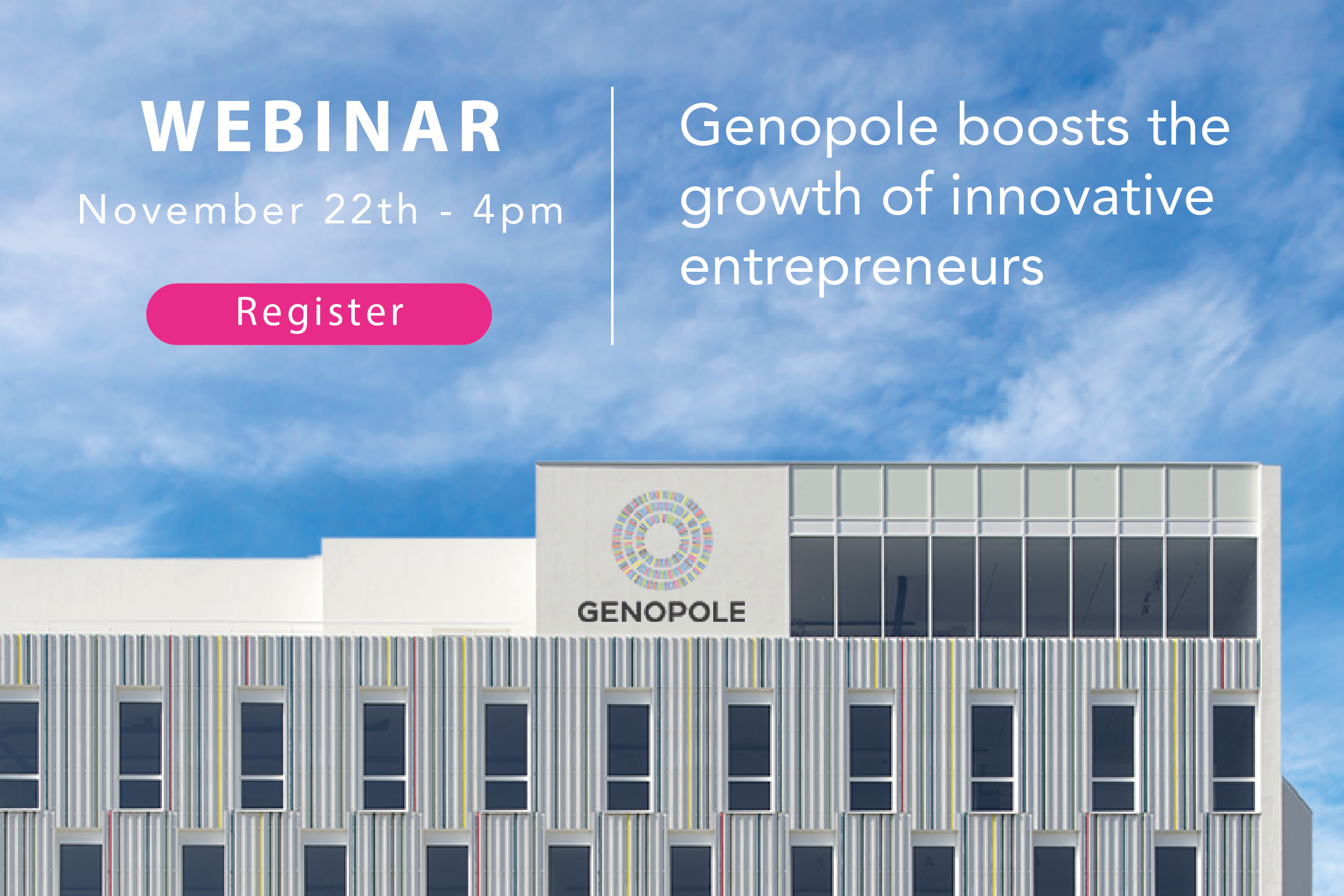"A new dynamic to support biotech players in their development"
As France's leading biocluster, Genopole has launched a vast programme to offer new opportunities to biotech professionals. Stéphane Beaudet, President of the GIP and the SEM Genopole, describes this project, which is unique in Europe.
For those who don't know it yet, could you introduce Genopole?
The idea for Genopole was born in the early 1990s within the AFM-Telethon, the association of parents of children suffering from muscular dystrophy. It was driven by its president, Bernard Barataud, who imagined a biopark project where fundamental research and applied research would coexist and mutually fertilise each other, leading to the creation of gene therapy for rare diseases. In January 1998, Pierre Tambourin, then Director of the Life Sciences Department at the CNRS, was asked to manage the creation of the biocluster. On 23 October 1998, the Genopole biocluster was inaugurated.
What are Genopole's missions today?
Developing gene therapies to combat rare diseases is Genopole's primary mission. However, new areas of research and application are emerging. Genopole's ambition is to consolidate and develop its position to become one of the world's leading bioclusters in the fields of biotechnologies applied to the challenges of therapies, food and the development of materials through original, low-impact ecological methods. In addition, digital genomics aims to make better use of the genomic data collected to facilitate new innovations.
What are Genopole's assets?
It's always worth remembering that Genopole today consists of 77 companies, 19 academic laboratories and 25 shared platforms with high-tech equipment, the aim of which is to help project leaders set up their start-ups and, if possible, support them through to industrialisation. In order to be even more in tune with their needs, we have just made a change in the governance and organisation of Genopole with the aim of responding with greater agility to the urgent needs of companies wishing to set up or expand. The GIP and SEM are now working with their partners (the Île-de-France Region, the Afm-Téléthon and the French Ministry of Higher Education and Research) to reposition the biocluster for the next 10 years. It is a renewed and shared ambition.

Stéphane Beaudet, President of the GIP and the SEM Genopole
Let's talk about the future... a vast program of work has begun. Will it radically change the face of Genopole?
With the new strategic real estate plan, we are providing ourselves with the means to welcome new companies and research laboratories to make our economic ecosystem denser by 2025. With the support of the Grand Paris Sud region, nearly 40,000 m² of new space will be created to accommodate new activities ranging from start-ups to biomanufacturing. Genopole will also house a foodtech lab, a real space for prototyping new foods made from biosourced proteins. By 2025, three new six-storey buildings will house new companies in 21,000 m² of laboratories and offices. Another challenge for the future is to make the campus more pleasant and attractive for the staff who work there all year round. For example, a high-end hotel will open in early 2025 with 195 rooms and two restaurants. At the same time, a new restaurant will open in September 2023.
What about the Factory project and bioproduction?
The project is in the process of gestation. We need a low-cost, accessible and adapted offer for startups. We also need to create an atmosphere conducive to creativity and innovation. The Factory will therefore host young startups wishing to test and develop their solutions at attractive rates, but it will also be a real third-party place that will host events and artists. In short, a real place to live.
Finally, to complete the business pathway, we are preparing to welcome companies that need to produce at an industrial level (Bioproduction) to a 4.6 hectares site in the Bois Sauvage district, in the direct vicinity of Genopole.
What message would you give to biotech companies who are still hesitating to join Genopole?
Joining Genopole is a guarantee for project leaders and entrepreneurs that they will benefit from a very high quality environment. In terms of academia, joining Genopole® means benefiting from a unique ecosystem in the field of training, with the presence of three universities (Evry, Paris-Saclay and Créteil), four Grandes Ecoles (TSP, IMT-BS, ENSIIE and ICAM), and three major CFA (French apprentice training centers), which means that you can be sure of being able to recruit high-level managers, engineers and technicians who will contribute to the success of your companies. If we talk about research, it is also the possibility of establishing collaboration links with numerous national organisations such as the AFM-Téléthon, the CEA, INSERM, the CNRS, INRIA and INRAE. From an economic point of view, it is also the possibility of collaborating with genopolitan companies that are experiencing strong development such as Altar, Abolis, Ÿnsect, Texcell, Illumina... and of course our major Yposkesi, an international company producing viral vectors for gene therapy. In short, a rich, complete and diversified framework, quite unique in France, which encourages interconnections between its members and facilitates projects.
What is Genopole's capacity to offer tailor-made support to project leaders?
Genopole is a biocluster where you can find excellent real estate and numerous services (managed by SEM), committed and facilitating partners (training, research, local authorities), as well as support services such as Shaker and Gene-IO offered by the GIP teams and high-quality shared technology platforms. As I was saying, Genopole aims to offer support from ideation to industrialisation. The case of Yposkesi is symbolic of this desire. Created by the AFM-Telethon and based at Genopole from the outset, the company has been very successful and is building a second factory on the site where it was created to double its production capacity.
Any last words?
I wouldn't be complete without mentioning the privileged location of Genopole, which, along with Paris-Saclay and the Gustave Roussy Institute in Villejuif, constitutes the real French golden triangle of biotech in the south of the Paris region. Biotech investors have made no mistake in betting on the magnificent potential of our biocluster, without forgetting the men and women who work there and make up its strength. The modernisation and creation of new transport infrastructures in Evry-Courcouronnes and around Genopole (RER D, Tram 12 express and TZEN 4) will totally change the situation in the next two years and reinforce the attractiveness of Genopole and the Evry-Courcouronnes area as a whole!
Would you like to know more about the real estate oppotunities offered by Genopole?
Register now for the November 22 webinar!


